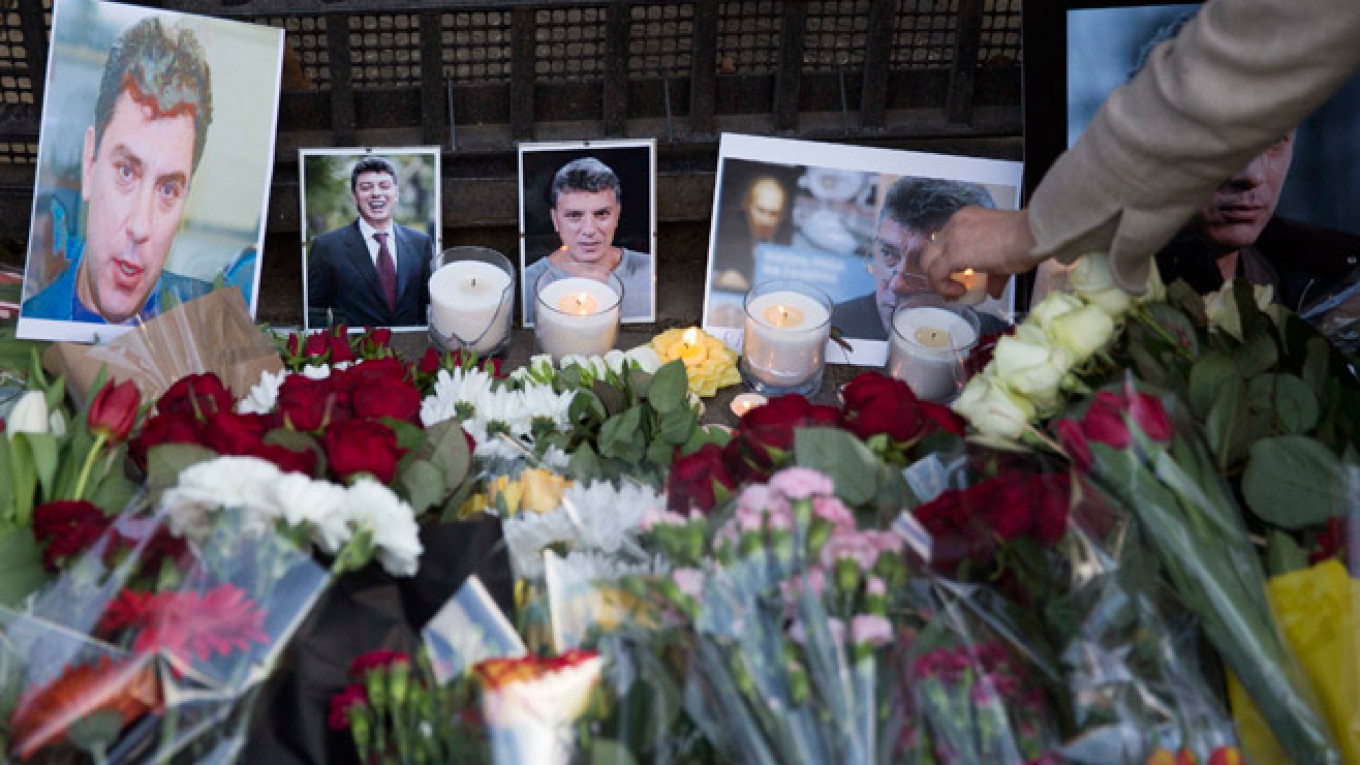Authoritarian regimes come in different shapes and sizes. In some states, the political opposition is deprived of power, influence, and participation in political life through peaceful, non-violent means. In others, the killing of opposition politicians is just a regular occurrence.
Until Friday night, none of us realized how much Russia belonged to the second type of dictatorship. A long-time professional opposition member quietly goes for dinner at a historic shopping mall and then proceeds to walk the streets of the capital. That night we witnessed a new iteration of Russian authoritarianism, one which is increasingly shifting from a pragmatic dictatorship toward an ideology-driven dictatorship of self-preservation.
Regardless of who the shooter was and whose orders he was carrying out, a country where a critic of the regime is forced to fear being killed on the street rather than being arrested at a political rally is an entirely different country altogether.
In some countries, the state strictly monopolizes its repressive mechanisms, the restraint of the opposition and the crackdown on the dissident movement. In others, this monopoly is lost. Repressions spin out of control, and the repressive reins slip to the masses.
This doesn't usually happen in places where the people and the leadership consolidate as a result of improved living standards, which is what happened in the first decade of Putin's tenure or in China during the 1990s and 2000s.
It happens in societies that consolidate around opposing an enemy. In such societies, the regime mercilessly divides people into good and bad in order to preserve itself, to eliminate uncomfortable questions, or to spur approval for its policies.
The good people remain full-fledged citizens and are protected by law, however imperfect it might be. The bad ones are stripped of their citizenship and legal protections.
Some start taking this signal too literally — as a call for action. Didn't you tell us to crush the enemies? Well, crushing them we are.
In recent years, the Russian lexicon has been "enriched" by a series of labels for those opposed to crucial domestic and foreign policy decisions — for example, Putin's return to the presidency, the construction of national identity around sexual orientation, the annexation of Crimea, and the intervention in Ukraine. The dissenters are called traitors, the "fifth column," enemy collaborators, and destroyers of the country and its values.
New individuals have been added to the invisible proscription lists: Alexei Navalny, Andrei Makarevich and Boris Nemtsov, along with "foreign" television and radio stations like Dozhd television station and Ekho Moskvy, the Higher School of Economics, the "bad" theaters, etc. And this is done not only through grassroots initiative but also by instruction from the top. Once these citizens are labeled "bad," the law offers them fewer protections than what the "good ones" receive.
The state acts on this distinction by its actions rather than just words — often quite openly, through television broadcasts. I am not just referring to the bizarre court cases against the likes of Navalny, where the alleged victims claim that they suffered no damage, but the courts say otherwise and impose real sentences. There are much simpler and cruder things.
Cossacks whip the members of Pussy Riot for desecrating the Olympic mascot. Everyone is already used to seeing and hearing news about Russian Orthodox activists or other disgruntled citizens who break into places, break things and chase people. Active expression of hate is all but legalized now.
Someone threw a toilet bowl at the roof of Nemtsov's car in 2011. They threw ammonia on his face when he was running for the mayor of Sochi. His personal telephone conversations were published by LifeNews during the 2011 winter protests. No one was found and brought to justice. So why not take the next step, then?
It makes even more sense in light of the fact that after the start of war in eastern Ukraine, state-run media legalized and advertised the idea of armed struggle against the enemy. So now people who have gained the experience of such armed struggle are returning to Moscow and finding plenty of enemies here — all kinds of scum are walking on the street, all these fascist sympathizers who have killed our own. The government is treating them with kid gloves, but we won't.
Today's activists who are fighting against enemies and traitors represent shady military-reenactment, militant-patriotic, and pseudo-religious organizations that have closed structures, secret membership rosters and obscure sponsors.
Many of them could be seen at the recent "Anti-Maidan" protest. Their role has significantly increased since the time when the state first required private, unofficial helpers to mobilize volunteers for the Donbass war.
Foreign press accounts suggest Putin's main rival was killed on the eve of an opposition protest. Many Russians may find this description too simplistic — Russia actually lacks a system in which Putin can even have a rival.
However, this murder reveals the internal changes to the period of Putin's ''stability.'' While it was originally rooted in strong economic growth, it is now based on mobilizing the people against an enemy. And when one segment of the population is incited against another, what kind of stability are we actually talking about?
Russian authoritarianism has another distinct characteristic. You can openly bash Putin in the press and on radio and television and face no repercussions. But if you were ever part of his entourage and then changed camps, you are a traitor now. But it is even more dangerous to hurt the feelings and interests of some provincial mayor or a regional parliament member whose commercial interests are at stake.
Putin will think twice about the benefit of killing a journalist or an opposition leader. But these other guys don't worry about their international reputations — you cross their path, and you can find yourself dead. That's how half of Latin America, Africa, the post-Soviet space and Eastern Europe operates.
That's what Andrei Zvyagintsev's ''Leviathan'' is about. But it's also about the regime's responsibility for creating the climate in which a true patriot can kill an enemy from the invisible proscription list, or a local boss can crush someone who crossed him. After all, sooner or later the search for the perpetrator will inevitably stop at the slimy trunk of the state monster.
Putin will most likely try to investigate a killing that does him no favors. In the course of the investigation, he will probably be offered an elegant circuitous scenario — one enemy killed another to discredit the regime. That's how the Anna Politkovskaya and Alexander Litvinenko murders have been spun to the masses.
However, Putin perfectly understands that this scheme may work well inside the country but will convince no one on the outside, where other patterns are in use, so it makes no sense to promote it. Putin will indeed try to investigate this killing, but it's more than likely that he will eventually have to stop as soon as the investigation runs into some friends or allies, or friends of the allies, or perhaps active opponents of the enemies of the state.
Alexander Baunov is editor-in-chief of carnegie.ru. This comment originally appeared on carnegie.ru.
A Message from The Moscow Times:
Dear readers,
We are facing unprecedented challenges. Russia's Prosecutor General's Office has designated The Moscow Times as an "undesirable" organization, criminalizing our work and putting our staff at risk of prosecution. This follows our earlier unjust labeling as a "foreign agent."
These actions are direct attempts to silence independent journalism in Russia. The authorities claim our work "discredits the decisions of the Russian leadership." We see things differently: we strive to provide accurate, unbiased reporting on Russia.
We, the journalists of The Moscow Times, refuse to be silenced. But to continue our work, we need your help.
Your support, no matter how small, makes a world of difference. If you can, please support us monthly starting from just $2. It's quick to set up, and every contribution makes a significant impact.
By supporting The Moscow Times, you're defending open, independent journalism in the face of repression. Thank you for standing with us.
Remind me later.








